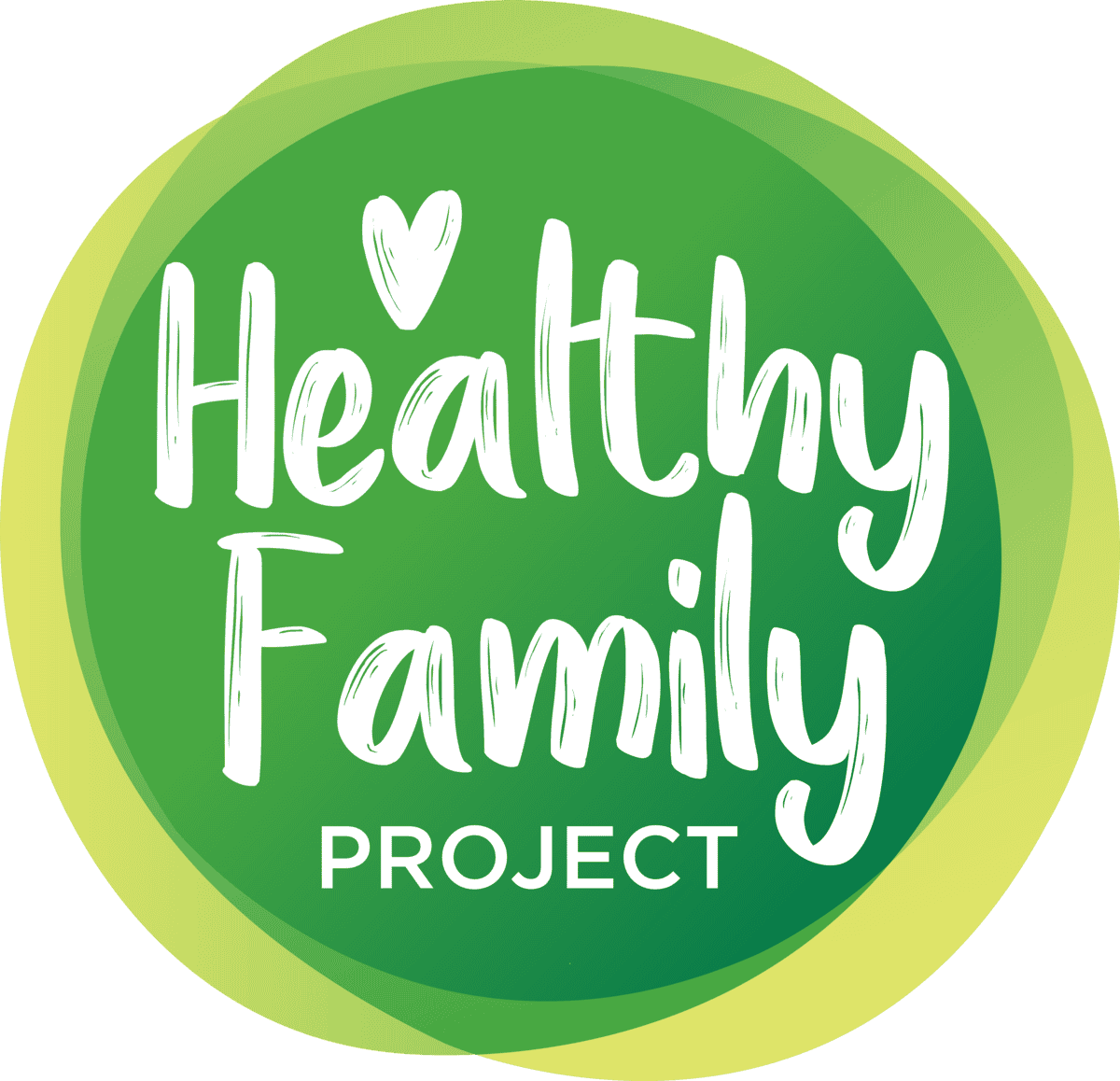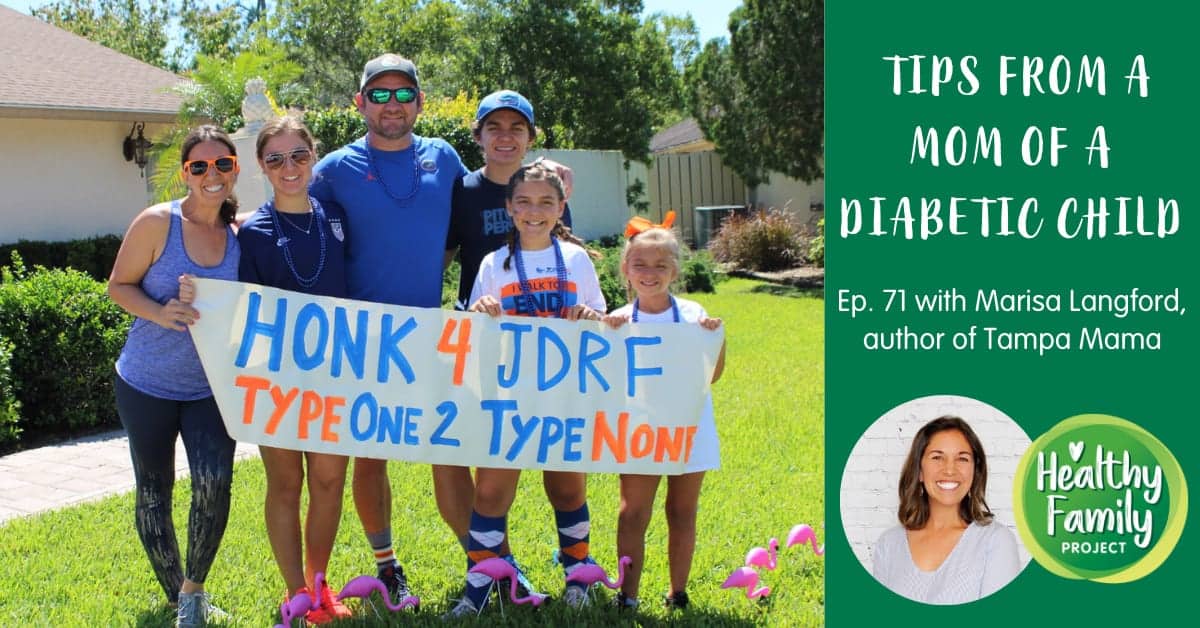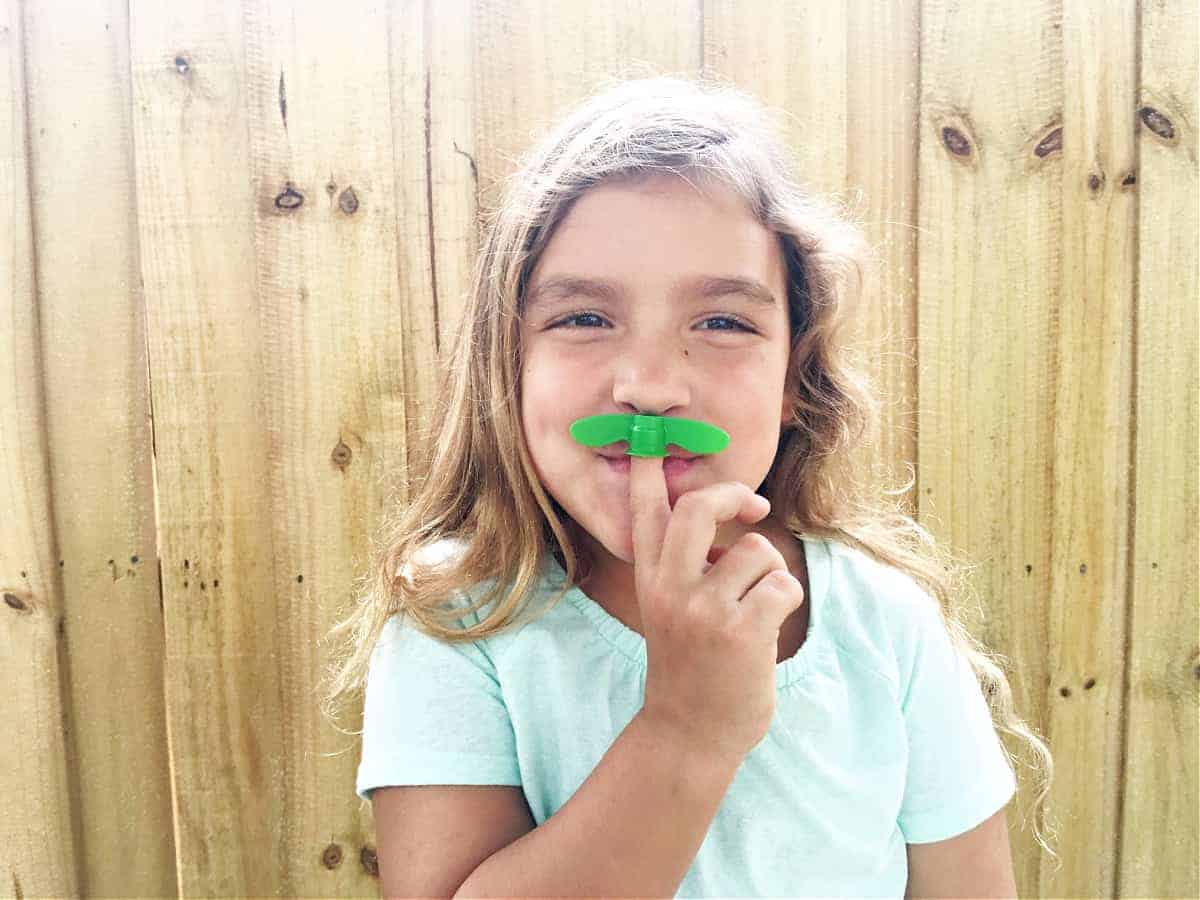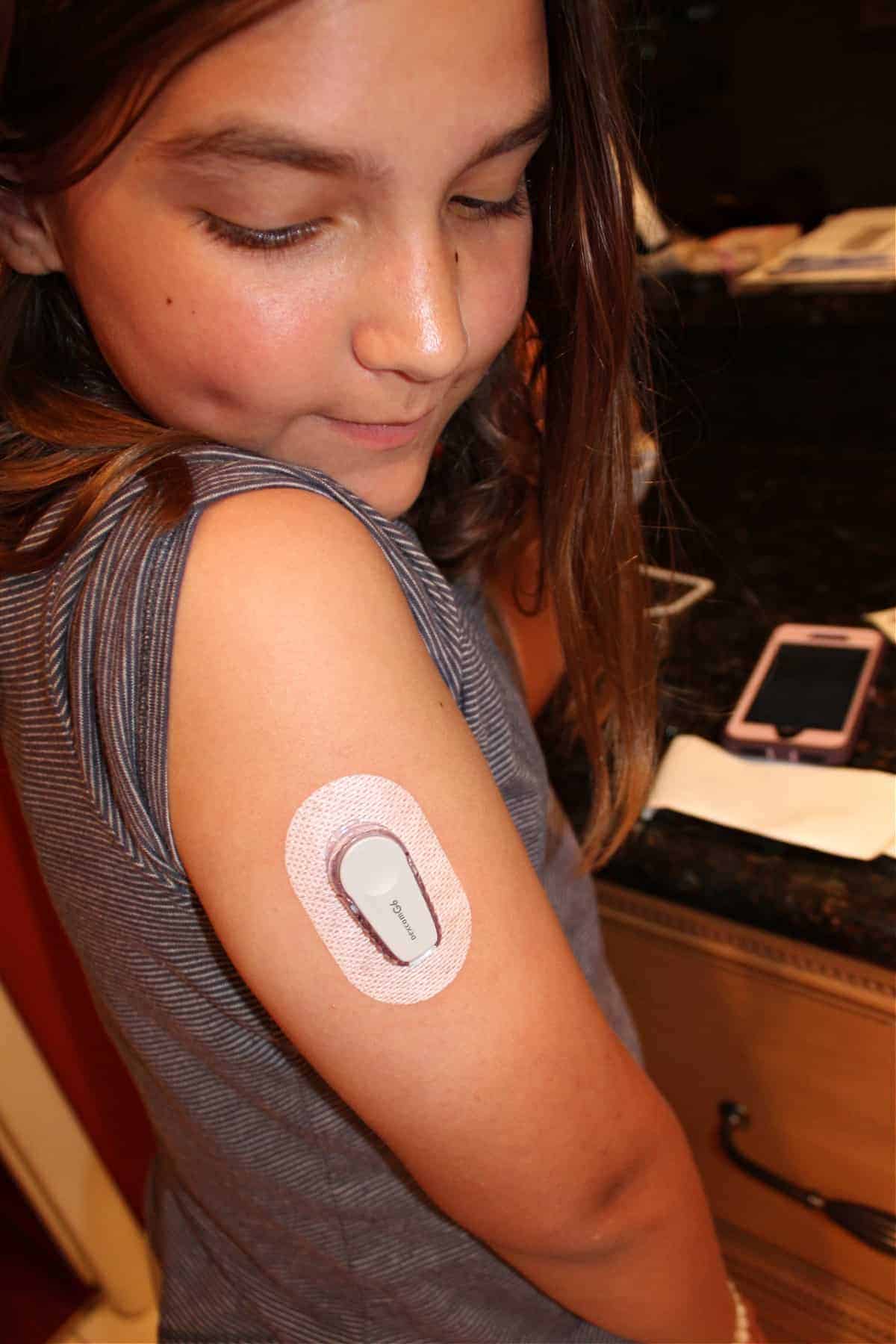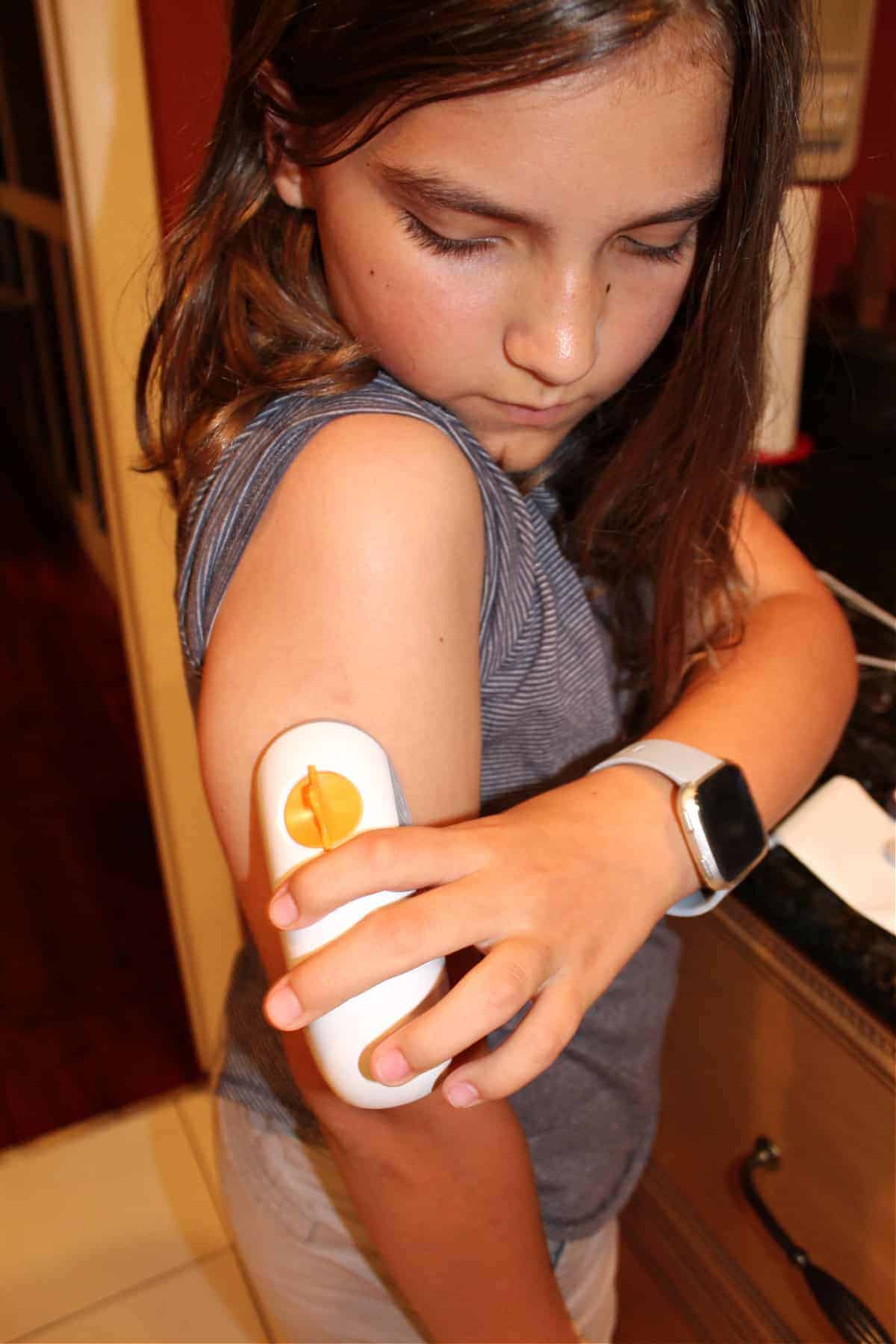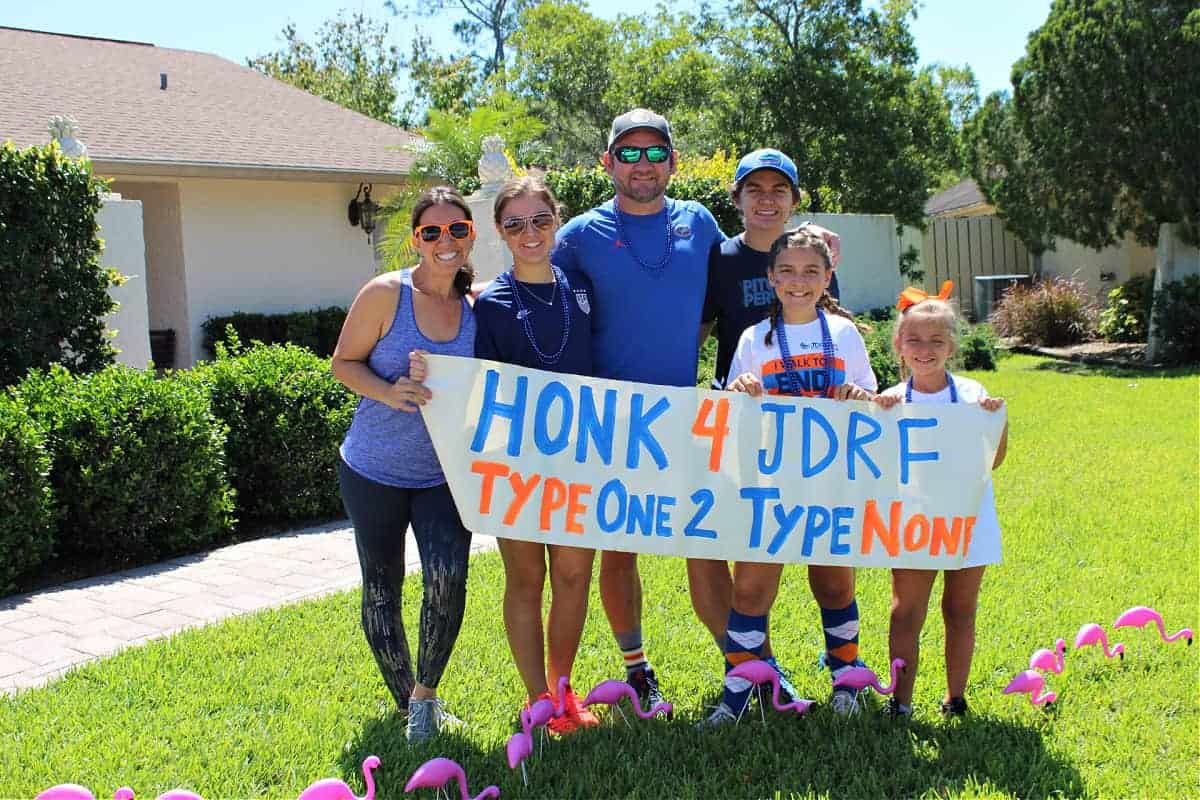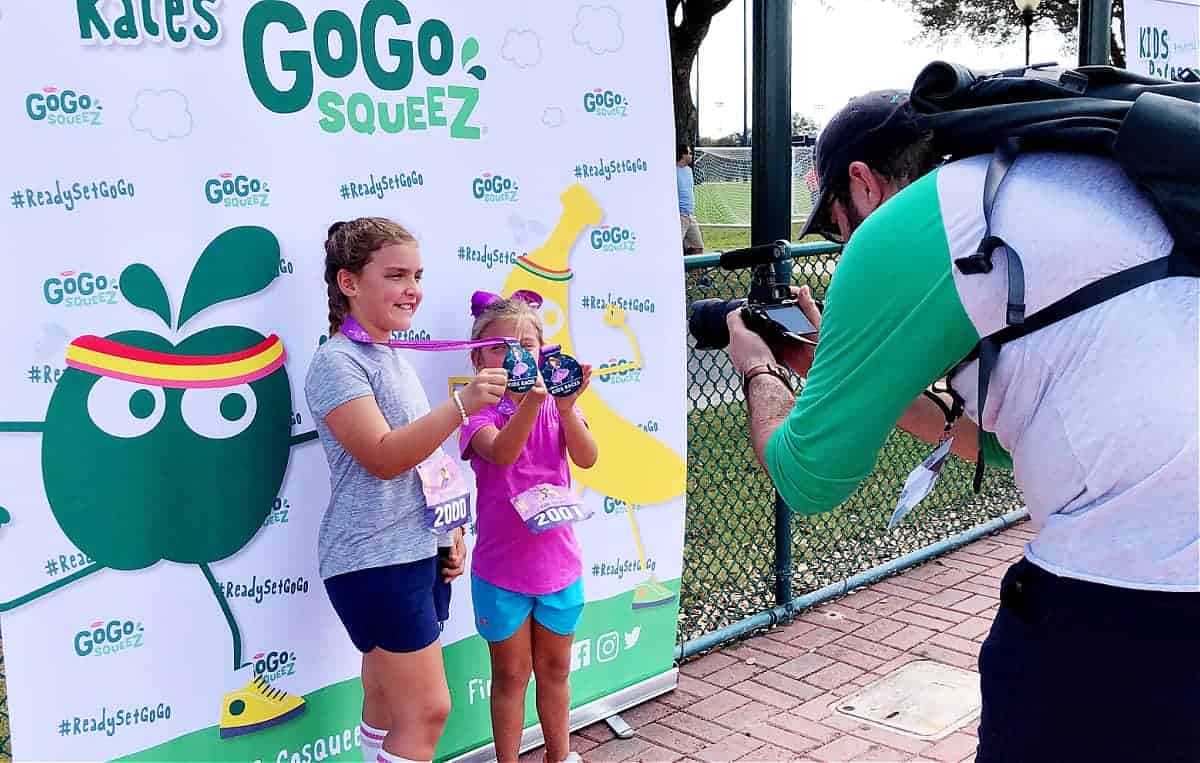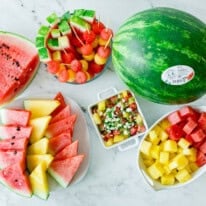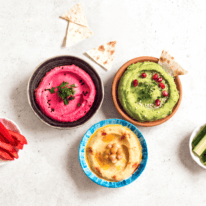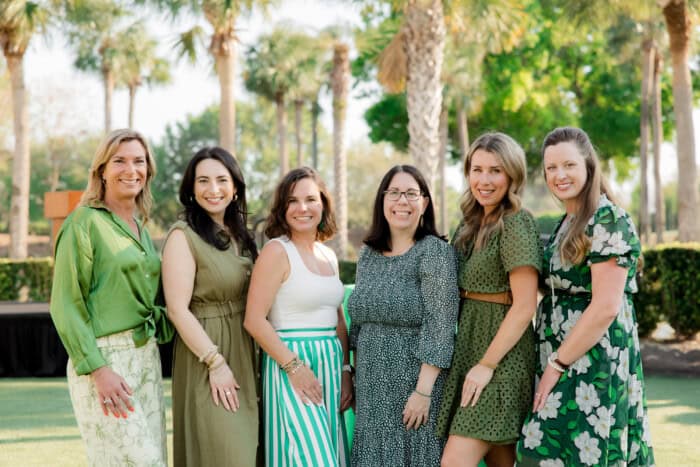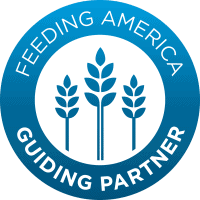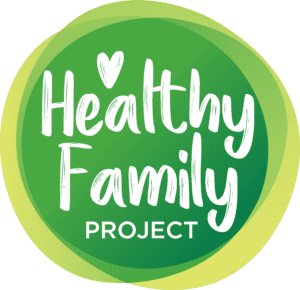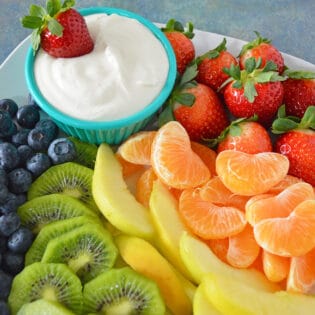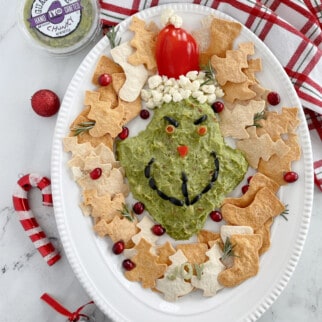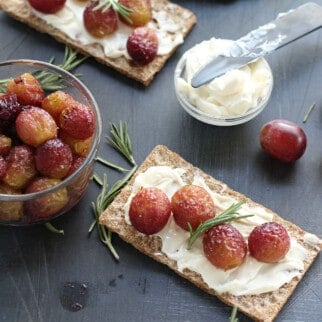Episode 71: Parenting A Child That Has Type 1 Diabetes
This episode of the Healthy Family Project podcast is all about tips for families with a diabetic child. We’re joined by Tampa blogger, Marisa Langford, to hear about her family’s journey with Type 1 Diabetes and how they made important dietary and lifestyle choices to eat more balanced meals and prioritize physical activity. Marisa shares some of the early signs of diabetes, advice for parents with newly diagnosed children, and her approach for balanced eating and encouraging her daughter to enjoy healthy foods.
There’s nothing easy or simple about finding out your child has Type 1 Diabetes. In this episode, we sat down with Marisa Langford and heard about her family’s journey with Type 1 Diabetes and the dietary and lifestyle changes they adopted following the diagnosis.
Marisa’s youngest daughter, Shelby, was diagnosed with Type 1 diabetes at age 8. This started a parenting and life-long educational journey that centered around healthy eating. This process can be very nerve-wracking for families and Marisa shares great tips to navigate the early stages of Type 1 Diabetes, how to not get immediately overwhelmed with all the medical jargon, and how to practice moderation when it comes to food.
Over the 3 years that Marisa’s family has lived with this diagnosis, they’ve learned a lot about nutrition and have been able to pass on these learnings to their kids in a palatable way while empowering Shelby to get involved the kitchen.
Listen to the episode Tips For Parents Of A Child With Type 1 Diabetes
What We Cover:
Want to skip straight to a hot topic? See timestamps below. But of course, we recommend listening all the way through to get all the great tips and tricks!
- 3:19 Meet Marisa!
- 4:45 Early signs of diabetes
- 8:45 Advice for parents with newly diagnosed children
- 10:18 How Marisa’s family approached balanced eating
- 12:22 The benefits of getting kids in the kitchen
- 22:03 Family gardening
- 27:33 Marisa’s partnership with GoGo squeeZ
About Our Guest, Marisa Langford
Marisa Langford is the founder of the Tampa Mama Blog, a blog dedicated to sharing the best places for kids and families around the city. She also writes about motherhood, family travel, and how to manage a household of 6. She is a working Mom of four, carefully juggling a full time career in experiential marketing, leading Girl Scouts and all the chaos that goes along with a family of 6. She has a daughter who is a Type 1 Diabetic and 3 children with rare medical conditions.
Marisa is a speaker, influencer, and passionate about all things mom. She partners with brands that share her passion for healthy living, on the go fun and family togetherness.
Marisa has been published by Huffington Post, Where Traveler, Parents.com, the Today Show Parenting Blog, Trekaroo, Tampa Bay Parenting Magazine, and many others. She contributes to a variety of online publications and also appears monthly on Great Day Tampa Bay on WTSP New Channel 10.
Relevant Links
- Check out Marisa’s blog
- Follow Marisa on Instagram & Facebook
- Get 70+ ideas to Power Your Lunchbox
- The Ultimate Guide to Packing Healthy Lunchboxes
- Tips for Packing Healthy School Lunches
- Food Rx: Creating a Balanced Family Meal
- 3 Healthy Snack Boards for Kids
- Gardening Tips for Beginners
- GoGo squeeZ
Other Podcast Episodes to Check Out:
- Episode 43: Helping Kids Make Good Choices
- Episode 34: Lunchbox Packing Mistake to Avoid
- Episode 18: How Families Can Reduce Food Waste
Healthy Family Project Facebook Group
Join our Healthy Family Project Facebook group! This group will serve as a safe space for parents and caregivers to talk all about raising a healthy family – from dealing with a picky eater and tips to get more fruits and veggies onto plates to exercising as a family and mental health. We welcome all of you to join in!
Listener Survey!
Thank you so much for supporting the Healthy Family Project Podcast! We’d love it if you could take 5 minutes to let us know how we can bring you the best possible content for future episodes. Take the survey here.
Healthy Family Project Podcast
Conversations covering hot topics in the world of health, food and family with a dose of fun. Helping families ease their way into a new fresh and healthy world.
Be on the lookout for new bi-weekly episodes and don’t forget to subscribe on Apple Podcasts, Google Podcasts, Spotify or your favorite podcasting site. If you like an episode, make sure to leave a rating and comment.
If you are interested in being a guest on the Healthy Family Project podcast, contact amanda@healthyfamilyproject.com with your topic idea for consideration.
Transcript for Episode 71
This transcript was produced by Otter.Ai. Please forgive any misspellings and grammatical errors.
00:09
Welcome to the healthy family project by produce for kids, covering the hot topics in the world of health,
food and family with a dose of fun. Hi, everyone. Welcome to the healthy family project podcast. I’m your
host Amanda and I am very happy you’re joining us today. I took a little break this summer to regroup
and identify new and amazing people to talk to this year. So I’m bringing you the most helpful and useful
content possible. Remember, you can always leave a comment, or you can join us in the healthy family
Project Facebook group to share your ideas and thoughts on what episodes you would like to see in the
future. If you haven’t listened through all of our episodes just yet, I might suggest a few of our fan favorite
episodes to check out helping kids make good choices. how families can reduce food waste, and
lunchbox packing mistakes to avoid which is timely. And if you are heading back to school if you’re
already back to school, you need some information or inspiration for lunches, you can check out our
website. In addition to healthy family project.com. We also have power your lunchbox.com which is the
hub for lunchboxes. And this year our partners are giving $12,000 back to the United Fresh Start
foundation to increase accessibility to fruits and vegetables in schools. So you can head over there for
information and inspiration and support some of those companies that we work with who are making a
difference. And let’s see today’s episode we are welcoming Marissa Langford who is the blogger behind
Tampa mama.com. It’s a parenting blog in Tampa Tampa Bay Area that covers travel, things to do and
family fun in Tampa Bay. She is a busy mom to four kids ages 13 to five and is on constant search for
adventures with her kids in Tampa and beyond. Her daughter Shelby was diagnosed with type one
diabetes at age eight. With this diagnosis her family has made healthy eating and an active lifestyle of
priority. She manages national partnerships with GoGo Squeez and works to advocate for healthy eating
and happy kids. She’s a freelance writer and Content Curator for various websites online in print
magazines. And in her free time she leads Girl Scouts on a typical weekend you can find her and her
family out and about in Tampa or at the soccer or baseball fields. I am very excited to talk to Marissa
today to gain insight into living with type one diabetes as a family. But before we jump in just a quick
reminder that you should always consult your family doctor when it comes to medical advice and
questions. Welcome to the podcast Marisa I’ve I’ve had I’ve taken a little podcast break this summer
which was, which was much much needed. But I’m glad to be back. And I’m glad to have you on today to
talk to we’re going to talk all about your journey with your daughter’s type one diabetes diagnosis, and
how you’ve incorporated your learnings into your family’s life. But before we jump in, can you tell the
listeners a little bit about yourself?
03:19
Yes, thank you so much for having me. Super excited about being here. Um, yes. So my name is
Marissa Langford. I am a mom of four. My family and I live in Tampa, Florida. So our journey began with
this journey. This particular one, actually, well my kids range from ages 16 to nine. So our house is
definitely full. And you know, healthy eating has always just been a super big priority for us in our family.
But the journey of type one diabetes began about three years ago with my eight year old and my eight
year old was diagnosed at age eight with type one diabetes. So it’s been a it’s been a journey, a
parenting journey, a lifelong educational journey. And, you know, healthy eating is really at the crux of of
it and what we want to teach our kids but yeah, I’m super excited about being here and talking with you
about it today.
04:20
Awesome. Well, we’re excited to have you. What would I guess so just jumping right in here. I know you
said your daughter was diagnosed at eight years old. I don’t know if there’s, I guess maybe. Are there
signs? What were the signs that you you know, if you feel comfortable kind of talking about that, like as a
parent, is there something like a red flag or something to keep an eye out for?
04:45
Definitely, definitely. So um, so actually so which was Shelby her name Shelby. And so Shelby was
diagnosed at age eight. We have been actually in the kind of rare medical condition world for about 16
going on 17 years. Now, at birth, my three of my four children were diagnosed with an adrenal
insufficiency. And so they already have an autoimmune condition. So when that happened, you know, I
became pretty big on advocacy and educating myself about how to make sure that they stayed healthy,
etc. And, you know, with this condition, a lot of parents will tell you that, you know, they started to see
signs, frequent urination, lots of drinking, being very tired, a lot of weight loss, sometimes a substantial
amount of weight loss. And, you know, our other autoimmune condition for Shelby actually kind of
masked some of those symptoms. And we had ended up heading to the hospital or heading to the
doctor, and she was not doing well, I kind of had started to notice some things were off. And sure
enough, we got to the doctor’s office, I was actually out of town on a work trip. And my husband was like,
telling me to go to the hospital. So the whole way, when he was going to the hospital, I was driving home,
I was in Orlando, I called my mom and I was like, Can you look up all these symptoms and things? And
then we pretty much had it pegged for type one. But, you know, I was telling you earlier in our pre
conversation, had you asked me what type one and type two diabetes was, about two years ago, I would
have failed a very basic test. Because I didn’t know I was not educated. We don’t have it in running in our
family. Nobody in my family, our family’s history has it. And that’s kind of the mystery about diabetes. Yes,
it is something that is sometimes hereditary, but they’re not sure what magic passcode is to unlock it in a
child. So sometimes it sets in an age too. Sometimes it sets in an age 6789 could be late onset
teenagers. And it’s it’s a it’s a it’s an It’s a condition where your body is dependent show. So Shelby’s
body is dependent on insulin, she’s insulin dependent, her pancreas has decided it will no longer make
insulin. And so we she’s, she’s managed it amazingly, as do most kids, you know, starting to understand
what you need to do when you eat food and how your body just can’t break down the sugars. It’s very
mathematical and science based. And you know, the more sugar you eat, the more insulin you need to
take a kind of call it the cost of carbs, because the more carbs you eat, that’s what we count as
carbohydrates. But it’s still lifestyle, it’s a very big change to make sure your body stays healthy for long
term effects. And, you know, another thing we talked about to Amanda was, it can be very overwhelming
as a parent, the main reasons I was super excited about doing this podcast was with you is just because,
you know, I’ve been in their shoes at the diagnosis stage, and you’re overwhelmed with, you know, 70
years of educational research on diabetes in general and how to manage. But you’ve got to start
someplace, and it can be very overwhelming. So I am really excited about diving into our story about
healthy eating, cooking, you know, sharing what Shelby is learning to really lead a super healthy lifestyle.
Because it it won’t go away. So
08:24
Right. And so and I don’t think you’re alone at all, understanding that, you know, type one, type two
diabetes, I think that many people, and especially, you know, parents, so what would you say? What
would like your nugget of advice be to a parent who is, you know, has just been delivered this diagnosis
for their child? What would what would you recommend? You know, because, like you said it, I know, for
me, my brain would be like spinning, I wouldn’t even know where to begin.
08:55
Yeah, definitely. So what I think the main thing that I would start with, with parents that have newly
diagnosed child, one is, is don’t, don’t get too overwhelmed too quickly. Because it there’s people, people
begin to talk in medical jargon. And it takes a little while for your brain to really kind of understand some
of the terms. Even for the smartest of people. It’s just it’s a lot of information. Um, and, you know, we
have, we do have a very amazing team of pediatricians and endocrinologist and dietitians and
nutritionists that have all helped us kind of get to where we are today, three years later. And, you know, at
the, at the heart of it, the bottom line is, it’s really is in order to, in my opinion, again, I always preface to
I’m like, I’m not a nurse. I’m you know, I’m not a medical provider, but at the heart of it and what we’ve
understood as a family is that we need to be we need to eat healthy We have a balanced lifestyle of
healthy eating. And, you know, people ask sometimes like, well, can she have cake? Yes, absolutely. No,
can she have a sweet app, right? Grab a cookie. Absolutely, she’s not our child is not allergic to anything.
So there’s really no foods that are off limits, but it is a moderation. It is a treat, it is not an everyday kind
of let’s go and drink a super sugary you know, Slurpee every school. Um, you know, we really moderate
that. But then it’s the balanced meals of a protein and vegetables and fruits, and you know, a smaller
portion, maybe of carbohydrates, not an entire batch of pasta for dinner. And so it really isn’t, then a lot of
what I would, the other thing I think I would give it is, it’s going to take time for your family, for your child
to really understand it. And, you know, I have hope that the kids that are diagnosed, and the families
embrace it, and they cook with their kids, and they teach them how to eat healthy, and they teach them
where fruits and vegetables come from, and that they’re super involved and really helping them learn.
Because the only way that a child that is diagnosed or a teenager that’s maybe diagnosed is going to be
able to do this on their own as adults as if they learn with some of those healthier habits early and, and
they do learn Shelby is become an ambassador for gardening and my friends all know that she cooks
fabulous meals and she can minced garlic and cut onions. And you know, I love it. A cook have a full
meal from start to finish. It’s funny when we like leave our kids at home alone, we have teenagers, so we
can do that. Shelby’s usually in charge of some dinner, and she’ll make salmon with green beans and
some rice and you know, like, a whole meal for everybody that everybody likes, but she knows how to do
it. She’s gotten taken some time she’s gotten really comfortable in the kitchen. So the hope is there. But
yeah, it’s it’s a journey. It definitely definitely is a journey. And it does not happen overnight. So
12:15
well. And it’s so simple. I say this all the time about getting the kids in the kitchen, and really getting them
in the kitchen. I know sometimes it’s like, yeah, get kids in the kitchen, get them cooking, but it’s like,
okay, there’s gonna be a mess, there’s going to be a period of learning, it’s not going to be you know,
what you see a kid’s cooking show on TV or whatever it might be, we’re just snap your fingers and your
kid is in there doing the thing, but not my training, you know, getting them ready for the real world, in just
in general not having, you know, something like type one diabetes, but you’re setting her up for success
to be able to be on her own as like you said, this is a lifelong, you know, something that she’ll deal with
for the rest of her life. So she will have the tools to be able to do all of these things on her own, which is
just so important.
13:07
Yes. And that’s really where what we’re trying to take away with it. You know, I mean, obviously,
parenting, we’re all parents, you know, a lot of us are listening to podcasts and and it is one of those
things. You know, you do want to have your children set up for super successful, you know, endeavors
and things like that. And Shelby’s really, it’s been interesting. It’s been, it’s been interesting, cool. So
amazing to watch her grow. She’s taken agriculture, she’s in seventh grade. And sometimes I have to
remind myself that she is she just turned 12. And so like I said, we’ve been dealing with this and she was
eight. And it’s, it’s, it’s been so cool to watch her grow and really love to learn about this kind of stuff. And
then she’s also been become very open about she, you know, telling people about what her diabetes is,
you know, every body has their own comfort level of what they want to share. But her friends always are
interested her friends keep an extra eye on her. Her teachers are always interested to know, you know,
how can we help you and but then, you know, so a side note, I have a blog. It’s actually called Tampa
mama. And on my Instagram account, I use a hashtag called chef Shelby. And it’s been really cool to see
because I have a lot of my friends going, oh my gosh, we watched Shelby cook a whole like, start to
finish like, oh my god, it looked amazing. And she’s I really hope that you know, she becomes somebody
that other kids watch. Cooking shows like we watch a lot of those shows. And you do see them and
those kids have probably been in the kitchen with their parents. You know, not starting from you know,
sorting garlic at age three, but Right, like measuring flour and height, an egg and like all those Small
basics, like how they you have to start somewhere. And, you know, it’s it’s the mess in the kitchen people
like how do you it’s, you know, it’s it’s become something that we really enjoy doing together. She’s
gotten to where, you know, she’s really interested in learning different skills that I’m like, oh, yeah, I can
look that up. Let’s
15:24
ask Alexa. That’s always my answer. Ask Alexa. I don’t know,
15:29
our she’s like, Oh, I saw this recipe. And you know, this is another tip like, we hit. Okay, so I probably
have more magazine subscriptions than the average person. But like, we love a magazine called eating
well, yes, that’s a good one. And we go to We love going to Barnes and Nobles. And I wish I could buy
every recipe book, but I usually can’t. So we sit there and peruse through the recipes and like get ideas
and you know, find things online. Pinterest is great. I know you guys have a ton of recipes, you know, all
over your website and pin Pinterest boards, etc. And you get them and they look amazing. And as long
as the kids can be excited about healthy eating Shelby didn’t eat a bazillion vegetables when she was
younger, like honestly, one of the things that people oh my maybe she’s always eating. No, her diet was
very carb heavy. And I realized that as soon as we were told by a nutritionist a diet, so diabetics, when
you’re in the endocrinology office, that endocrinologist is will become your best friend. And we went and
saw a diabetes nurse educator, and those people have a lot of times they’re like, Oh, yep, I was
diagnosed at age seven. And look, here I am talking to you guys about, you know what you guys want to
do and how you guys can you know what you should be eating and how you should be doing it?
Because there’s a whole science, um, you know, going down that and again, don’t get too overwhelmed
one step at a time, right? Yes. Trying to get First things first vegetables, we all know super healthy, but
trying to get your eight year old to eat brussel sprouts, broccoli, green beans, I know beets, carrots, you
name it. Tomatoes, like everything. That’s a daunting challenge for any parent. So where do you start?
But you know, I’m so I’m side note, I’m in marketing. And I know when if you put something on a plate of
food for a child using my marketing tactics, right? We got to make it look pretty.
17:31
Yes, exactly. Oh, believe me, you know, I’m the same over here. I’m like, Okay, I have the whole strategy
behind
17:38
this. You want to make it look appealing. That’s why we all follow these amazing food Instagram
accounts, and making it look appealing and giving her options like okay, well, we know you like garlic. So
what if we put some what if we sauteed some garlic and then added in the broccoli and then mixed it all
together? Like maybe and salt and pepper? That sounds fantastic. So we tried and like and it is, again,
this does not happen overnight. And she really had to become open to trying new things. Because I was
like, well, you can eat green beans every day for the rest of your life. That just sounds boring. Right?
How do we incorporate some cauliflower and now she eats. Again, mind you three years later, she’s
coming to us with new vegetables and new ways to cook things and ideas because she knows that she
likes this kind of flavor. And she wants to add this flavor into and she wants to mix it with the carrots and
a medley and I’m just blown away. But it really involved us getting her comfortable. And having, I guess
the confidence in us that we wouldn’t feed her anything that tastes bad? No, so I was like, You got to
trust us like, lets you know, I promise. Like if you think we like it, we would not we don’t want you to like it,
we want you to try anything. So it is it’s, it’s it’s so it’s a work in progress. Um, but I hope parents know
that they shouldn’t give up. I’m just getting your kids to eat fruits and vegetables, even for the parents
that are just trying to get kids to eat fruits and vegetables in general. You know, don’t give up don’t don’t
don’t give up on them with flavors, keep trying. And eventually they will come around, I promise.
19:24
Well, and I think it’s important to know too that, you know, with this diagnosis is apparent. You feel like oh
my gosh, I have to go and do all this research about food and have to figure all of this out. And clearly
involving your child in the process or involving the whole family, you know, siblings or whoever it might be
like, hey, everybody get on let’s get on Pinterest. Like, let’s try to find some new, you know, new ideas or
like you said, because this is what I do with my, my younger daughter is a very selective eater. But what I
tried to do is like kind of thing question She likes to sing. She likes that. So how can I bring those two
together, but also bring these brussel sprouts in, you know, she likes this cheese or whatever. And so I
kind of tried to marry that together. And oftentimes that that helps when she has some of those familiar
things with the unfamiliar. And like I said, the Pinterest, I gave her a, you know, here, look on Pinterest
that we did that this weekend, before grocery shopping, I said, What looks good to you? What do you
think we should have this week? And then we talk about it and, and then it kind of becomes something
they’re part of, instead of something that’s like, here, do this, they have a decision in it. They have,
they’re a part of it. You know, it’s not just like, Well, my mom told me to do this, or my mom told me, It’s
time to go here. It’s time to go there just giving them that, you know, just being a part of the team, I
guess.
20:53
Yes, absolutely. And that’s definitely one of the things that that has helped Shelby out too, is that feeling
of control? And I think it’s also the sense of it’s a, I guess, I don’t want to mean, maybe it’s a sense of
pride, like she cooks for her brothers and sisters and her brothers and sisters. They’re like, Oh, my gosh,
Shelby, this is so good. Um, what did you make it with? Or how did you make it and she’s not scared
about trying new things. Like, she made a salad dressing the other day that I was like, Oh, my God, this
is amazing. What did you put in here, and it was like, a, it was a Caesar salad dressing, but with no yolk.
And she like, like, well, I put some more structure in here and some parmesan cheese, and then some
olive oil. I was like, blown away, I was like,
21:43
oh, we need this recipe.
21:46
To have her remake it but she’s gotten where she kind of knows some of the very basic cooking, you
know, kind of combinations, oil, vinegar, adding, you know, a citrus or an acid and herbs and things like
that. And speaking of herbs, something else she does is she gardens, I feel like a lot of times, you know,
coming from farm to table is a really cool experience for kids too. Because they want to eat, what they
grow. And if they’re able to, you know, even grow things. And I hear a lot of people like oh my gosh, I
can’t grow, I am one of them, I can’t grow, I have to black down, like my sister, my daughter has a green
thumb and I kill everything in my garden or plants that I just can’t keep anything alive. And so my
daughter though, with this beautiful green thumb, she can grow anything. So for us that don’t have that
ability, even like, you know, Lowe’s and Home Depot have kits that are really, really super simple, really,
really work. So if you want to start someplace super simplistic, grab a gardening kit that will literally get
you from point A to B you know in a matter of a couple of weeks, with some sun, soil, water and air. And
they grow the peppers and they grow the tomatoes and they you can grow the herbs and the chives and
use them on potatoes and things like that. So for some color, but she’s really gotten, you know, that’s just
it was it’s kind of become a fun hobby for her. She checks on her garden every day after school and just
likes to grow things that do end up on our table. So
23:23
that’s great. And like you said it. It’s another thing that seems daunting, but there are so many you know,
I think that you know Lowe’s and those types of places make it pretty easy for us these days or even my
sister had ordered me on Amazon last year. I do a lot of we do a lot of container gardening here and I
just love it. I’ve always been really passionate. It’s like I just get so excited when I keep something alive
and it produces something like I just felt better. Yeah, I just get so happy. It’s like you know, even from
having a garden as a child to now I just, there’s something about it inside of me that just makes me so
happy when I see something bloom or be produced from a seed and just the process of it all I know it
sounds I’m probably sounding crazy right now.
24:20
Shelby’s garden it’s been really neat. I often like on my Instagram again, I said it’s I’ve shown Shelby’s
gardening skills like we had five beautifully perfect heads of cabbage last year and I was like oh my god,
this is like wow, this is amazing. I was like it is not me. Those Yeah. By Shelby from seed to you know the
top of it and a watermelon and she grew sunflowers and she grows herbs and jalapenos and less so you
know she loves to give a lot of our fruits and vegetables away to to her to some of our teachers that
know that she grows and I’m We have so many like, let’s, let’s give them away. So I think it’s also
become this hobby that people are, like I said, it’s that sense of prizes, like something she’s really found
that she’s really good at. And, you know, it’s, it’s really neat to see her flourish and even really want to
dive into it more. You know, like I was talking about these diabetes nurse educators, a lot of them, they’ve
been kind of, you know, almost training for this job their entire life, because they started as a kid that was
in the hospital, probably with their parents getting this diagnosis, and they’ve really made their career
about it, because they can see the value of helping others. And so that’s where, you know, I one thing I
also want to offer is like, we’re big with them, the JDRF, the, there’s a local champ tap chapter in every
single state in America, down to the cities, and they have such great resources, and we’ve met such
amazing people. And it’s such an amazing community, where if you are a parent that’s struggling to find
somebody to talk to our new parent, you know, reach out to the JDRF chapter in your area, and they can
help you find these diabetes nurse educators or nutritionists, if you’re really struggling with, you know,
trying to get them to eat new fruits and vegetables, or how do you do this. They’ve just have a great
community, which is really embraced us. I didn’t know it existed, and now I’m a big part of it, and I love to
be a part of it. So it’s, it’s, it’s definitely, it’s definitely again, been a big journey. But I’m really hoping that
Shelby, you know, one day will use all of her skills and she talks about opening up a restaurant and my
husband’s like, that sounds good, we can help you with that, but you need your finance degree first. The
thought of it will help you with the land and then you can buy your cows and we’ll get a garden. So it’s
really cool to watch her. But you know, trying to take it and turn things you know from the diagnosis into a
positive and that’s what we try to do every day with her.
27:13
Well, that is amazing. I know that we’re we’re running out of time here but I did want you to be I know you
work for a great company that you’ve been able to incorporate kind of into your your world here with the
type one diabetes. So before we close out definitely wanted to give a shout out to GoGo Squeez.
27:33
Yes. Oh, thank you. Yes. So I it’s been an interesting journey even with my my work as well. So yes, I do
National Partnerships for gogo squeezed and our brand everybody, most people know is that healthy and
applesauce brand, we have apple sauces that are in pouches that are portable and healthy and on the
go. And lots of them have fruits and vegetables in them, but they’re also very integral very integral to the,
to the diabetic world because they are a snack that is 15 carbs, and anybody that knows about low blood
sugar knows that kind of a rule of thumb is 15 carbs in 15 minutes, and you really want to try to take that
you know, in a fast acting carbs, so that you can bump up your blood sugar. And when you bump up your
blood sugar. It’s one of those things that you can use juice, you can use candy, but what parents have
really told me as I’m a member of the a lot of the community work that we do, they’ve told me that they
use go this was because it’s super healthy. It’s not there’s no sugar added it’s just the applesauce and
the natural sugars. And so I didn’t realize that we had this huge fan base of diabetic parents. And it’s
been interesting and amazing because I’ve met so many people even through my job that use my
product and our product for helping kids honestly stay alive because they need to bump up their blood
sugar during a low and it’s such a healthier option than some of the other fast acting sugars so and you
know go go squeeze something I really tried to do in my work I’ve become a really big advocate for
healthy and happy kids you know, active lifestyles and having a lot of fun you know, doing all the things
that we think kids should be doing because at the at the heart of it we all want healthy and happy kids so
it’s it’s been a it’s been a an amazing way to blend my personal life and what’s going on and my work and
my my jobs as well. So
29:37
well you know I’m an advocate for that I can overhear with healthy family project, you know, 1010 years
of like, I just love everything that I am able to do share these messages, share stories like yours,
promote healthy eating, and you know if that’s my job I’m I’m pretty excited about it’s still after 10 years.
30:00
Honey, I’ve been working with GoGo Squeez, for 10 years too. And it has, it’s been being a member of
this team and knowing what we put into our products and knowing that, you know, everybody from our
innovators, you know, our entire team, we’re just solely dedicated on healthy and happy kids. And you
know, having a company like that working for a company like that, and knowing how much it means to a
family, a diabetic family, just any diabetic name, or any family in across America, across the world that
just wants to do the same thing. You know, as parents, we all want to keep our families healthy, our kids
healthy, our kids happy, active, you know, and it’s just a really simple motto and mission. And I’m so glad
that I can be a part of it in a number of ways.
30:48
Wonderful. Well, thank you so much for joining us today, I will in the show notes, we’ll make sure that we
gather any resource links that you mentioned, or anything that maybe you didn’t mention, but you think of
after the fact that might be helpful. For families, we will include all of those in the show notes. So we can
link up to those. And then before we close out, can you tell listeners where they can find and connect
with you?
31:13
Yes, that would be great. So I do run a local blog here in Tampa. It’s called Tampa mama so it’s Tampa
Ma Ma and find me on all the channels on the social mediums. And then obviously I’m also online at
gogo squeezed calm. So if you ever need anything from their from either one, but yes, always happy to
connect with parents, and talk about any journey, you know, and how I can help and if I can’t help, I
always tell people I by can help you, I can definitely point you in the right direction for somebody that can
can help you as well.
31:49
Thank you so much. We’ll link up to all of those who you can be sure to find Marissa and just thanks for
joining us today.
31:57
Thanks so much for having me.
31:59
Great episode today. Thanks for listening in reminder go over to Facebook to join our healthy family
Project Facebook group. And if you like healthy family project, please tell a friend and leave us a rating it
will only help our visibility so we can continue to create a healthier generation. If you want to tweet with
me direct I met Amanda and Kiefer on Twitter and also the same on Instagram. You can find healthy
family project on all social media platforms Facebook, Twitter, Instagram, Pinterest, and YouTube. And
you can now find power your lunchbox on Tik Tok. Be sure to subscribe talk soon
